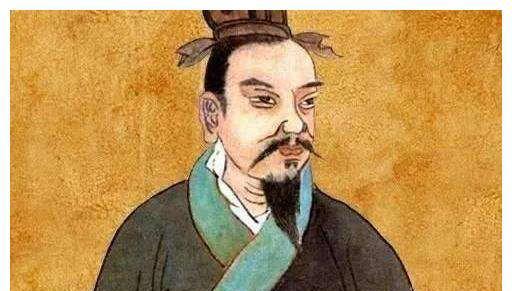God said: Let there be light; Qin Shi Huang said: There must be a minister
You must know the past and present lives of the Prime Minister and the Prime Minister. Look down and see the origin and changes of the prime minister and the prime minister, you will understand.
How did the Prime Minister come about?
In the beginning, "Zai" and "Xiang" were two different official positions. During the Shang and Zhou Dynasties, "Zai" was the "housekeeper" of the noble family, responsible for helping the nobles supervise slaves, manage livestock and other household chores, also known as "family slaughter". Then the "Zai" who helps the princes manage the household affairs also helps to manage the affairs of the princely states is called "Yi Zai". Tianzi's "butler" who helps manage the imperial court is called "Dazai".

"Zai" is plainly developed from a personal butler. What about "phases"? As soon as "Xiang" appeared, it was to assist the state administration, and "Xiang" had the meaning of "deputy and auxiliary". The princes had to find a deputy to manage government affairs, and during the Spring and Autumn period and the Warring States period, all the princely states had the position of "xiang".
Later, Han Feizi pondered that this "Zai" and "Xiang" were called differently, and the things they did were almost the same, so they simply called "Zai Xiang" together, and at this time Guan Zhong was called "the first Prime Minister of China".
So how did the "beggar" come about?
In the past, everyone called each other, and there were all kinds of things. After Qin Shi Huang unified the country, the "prime minister" had a formal official title called "xiang". However, the prime minister has also been retained as a popular name.
In the Han Dynasty, the official name of Xiang Xiang also appeared in variations. For example, in the early Western Han Dynasty, there was "Xiangguo" and in the later period, there was "Great Situ", and everyone was not called Xiang Xiang, but they were collectively called Prime Minister. At this time, both Xiangguo, Grand Situ, and Xiangxiang represented the names of official positions, and "Zaixiang" evolved into a collective term for "the emperor's main assistant".
In the Eastern Han Dynasty, it is even more interesting, Taiwei, Situ, Sikong, and the "three dukes" jointly ruling, can all be called zai chancellor (multi-chancellor system).
In the Western Jin Dynasty, the "Three Dukes" became the "Eight Gongs" (the eight dukes were: Taiwei, Situ, Sikong, Taifu, Taibao, Taishi, Sima Da, and Great General); the chief officers of Shangshu Province were: Shangshu Ling and Shangshu Servant Shooting; the chief officers of Zhongshu Province were: Zhongshu Jian and Zhongshu Ling; and the governor of Menxia Province was: Shizhong . The Western Jin Dynasty did not have a chancellor, and both the eight dukes and the three governors could be called "prime ministers".
As for names such as "Xiang Xiang" and "Xiang Guo", most people did not dare to use them during this period. Why? If you think about what Cao Chengxiang did, you will know. Cao Cao set a good example, and those who usurped the throne and wanted to become emperor in the Wei and Jin dynasties first appointed themselves as "Xiang Xiang" or "Xiang Guo", which was equivalent to telling everyone that I was a traitor and a thief.
Later, "Xiang Xiang" as an official position, occasionally appeared for a period of time, and was soon abolished. The popular name of "prime minister" has been handed down. The official name of the Tang and Song Dynasties is "Tongzhongshu Menxia Zhangshi". The Ming Dynasty began to set up left and right ministers, and later Zhu Yuanzhang abolished the position of chancellor, and the power of the chancellor fell to the "first assistant of the cabinet". In the Qing Dynasty, the "military minister" was equivalent to the prime minister.
[Erzhu Shaoshuai] said: Xiang Xiang and Zai Xiang, from the beginning the Qin Dynasty was synonymous. Later, in the process of development, Cheng Xiang became a proper word for "position", specifically referring to the fixed official position. The meaning represented by the prime minister is getting wider and wider, and many ministers with the nature of auxiliary government can be called prime ministers.